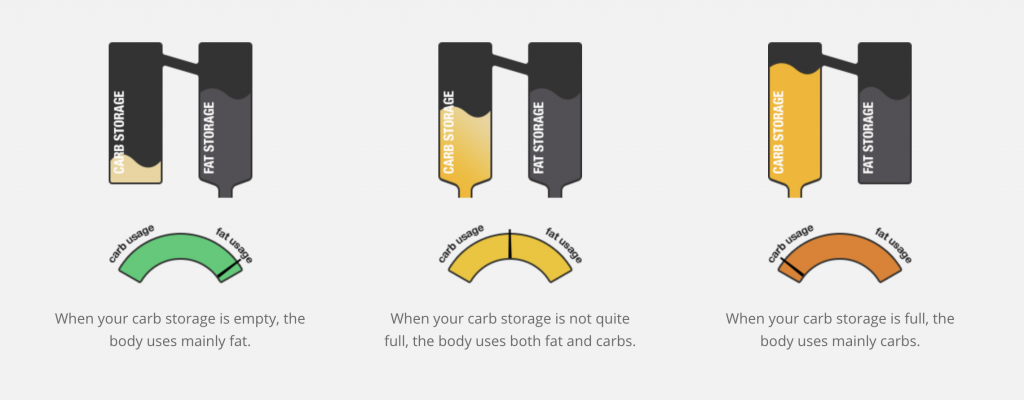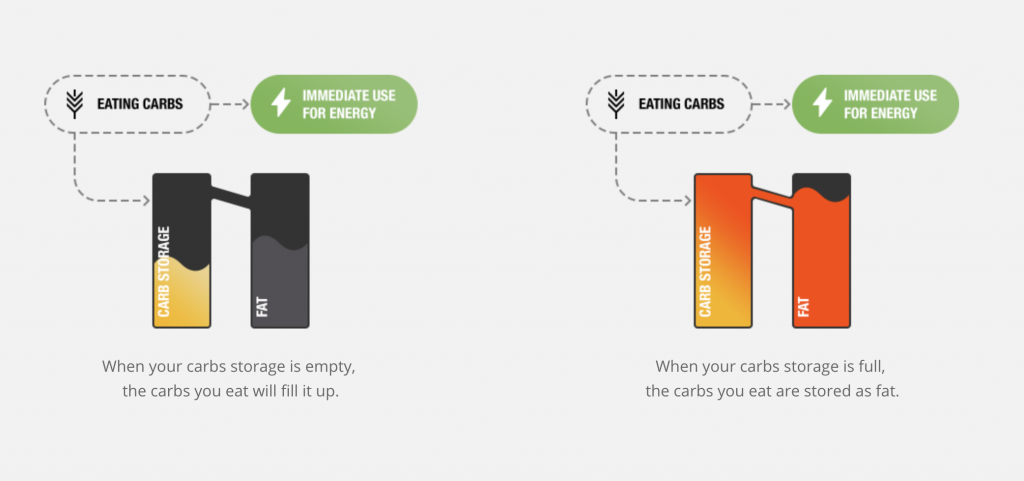Your body relies on three sources of energy: carbs, fats, and proteins, and each have a different function in metabolic processes. Proteins aren’t a major source of energy as the body uses them primarily as building blocks. Fats and carbs, the main energy sources, are partnered up to fuel you in various situations. However, in every given situation, the ratio of fat and carb usage shifts.
Lumen’s methodology focuses on improving metabolic flexibility — the body’s ability to switch between using fats or carbs as a source of energy, or even being able to use fats or carbs exclusively for fuel. While using carbs as fuel tends to be the easiest for the body, using fats as fuel provides longer lasting sustainable energy. The amount of carbs you consume, when you consume them, and your metabolically flexibility, will determine how carbs are processed by your body and the impact they will have on your health and your metabolic flexibility.

When people with good metabolic flexibility consume carbs, that energy either used for immediately energy or stored as glycogen if their glycogen stores are depleted. And only when their glycogen stores are full the extra carbs will be stored as fat.
In contrast, When people with bad metabolic flexibility consume carbs, the carbs will be stoed as fat even if their glycogen stores are depleted.
In other words, metabolically flexible people will convert the carbs they consumed into fat only when their glycogen stores are full. But metabolically inflexible people will convert any carbs they eat to fat, regardless their glycogen stores state.

Emily is a marketing and communications specialist and a former elite level figure skater.